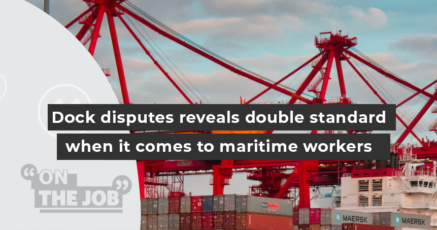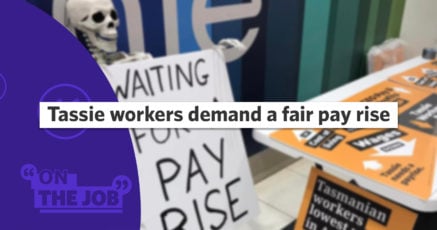Australians have learned a number of harsh lessons throughout these last few years as the COVID-19 pandemic turned daily life upside down.
One of those lessons is that without a highly competent, committed, and effective public service, we would be in deep trouble.
As the crisis grew deeper and the challenges more complex, Australians turned to their public service workers for lifelines.
Whether it be those who suddenly found themselves relying on Centrelink payment in 2020 or Australians caught in floods at the beginning of this year, public service employees were there to provide help. As usual, those workers who are the engine room of the government, showed up, stood up and delivered.
This work has made the government’s announcement last week all the more significant. The Albanese Government ended the war on the public service by committing to a centralised approach to bargaining, better job security and consultation with workers.
While that won’t immediately redress the mess left by the Morrison government’s bargaining policy and its program of widespread outsourcing and contracting, it’s an important start.
A major breakthrough for union members in the public sector
Members of the Community and Public Sector Union (CPSU) campaigned resolutely to oppose the previous government’s budget cuts, understaffing and the use of expensive private contractors to perform government work. Workers had been dealing with these issues while at the same time facing pay freezes, real wage cuts, and the erosion of working conditions.
The three per cent wage rise agreed to for all employees due between 1 September and 31 August next year doesn’t nearly make up for all the lost ground. But it does end the wage freeze, with the union members confident they can achieve a much better outcome through genuine bargaining.
CPSU National Secretary Melissa Donnelly told On the Job that these changes represent a major breakthrough for workers.
“This is a really important moment for CPSU members. We’ve been dealing with nearly a decade of the coalition bargaining approach across the public sector, and that’s included wage freezes, it’s held back wages growth, and it’s prohibited any improvement in conditions.”
Donnelly pointed out that the decay in the bargaining system was a deliberate ploy used by former Morrison Government to ensure public sector workers were denied bargaining power.
“It forced workers to negotiate with each agency and not in a centralised a forum,” Donnelly said.
“That has meant that workers’ wages have been held back. This is a really important reform. It creates the opportunity for service wide bargaining where we get to bargain across the public sector in support of each other to get the outcomes that our members deserve.”
The next steps forward
Donnelly conceded that there is still significant ground to make up for a workforce that has been punished for over a decade by a succession of hostile conservative governments.
“We want to see our members and our workers’ wages keep up with those significant cost of living pressures,” Donnelly said.
Donnelly described how public services workers have been pushed to the edge in recent years as pressure mounted on them to deliver vital services during the pandemic.
It’s been a really difficult time for many public sector workers. The pandemic came off the back of bushfires, droughts, and floods. For frontline workers in particular in the public sector, they’ve been out there helping the community through each of those events.
Melissa Donnelly
CPSU National Secretary

“We’ve had our members consistently working weekends and overtime to make sure emergency payments were processed. That’s why it was so disappointing when the Morison government froze wages and limited wage outcomes for employees in the public sector,” Donnelly said.
Just to make things worse, the Morrison Government pursued an agenda that further entrenching insecure work. The result was many secure public sector jobs turned into unreliable labour hire jobs. Unsurprisingly, the upheaval led to increased difficulties in recruitment and convincing workers to stay in the sector.
“So this is an important time for us to look ahead,” Donnelly said.
“It’s a crucial reform in terms of how bargaining works in the public sector that gives our members and workers the opportunity to negotiate for the fair pay outcomes that they deserve.”
The CPSU progress in bargaining has come at a time when workers in Australia across industries and sectors – have had over a decade of frozen wages.
Only a small proportion of workers are covered by enterprise bargaining agreements and our work laws have failed to keep up with modern workplaces.
To fix the wages crisis, Australia needs updated work and bargaining laws.
Cover photo credit: Yan Krukov













SHARE:
Public sector workers come in from the cold as wage freeze ends